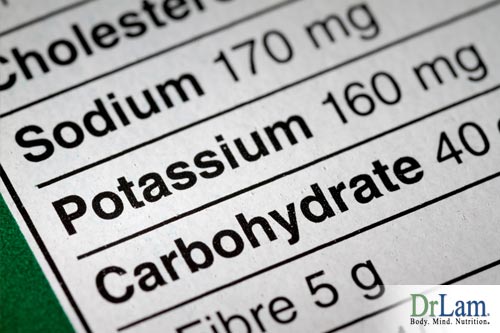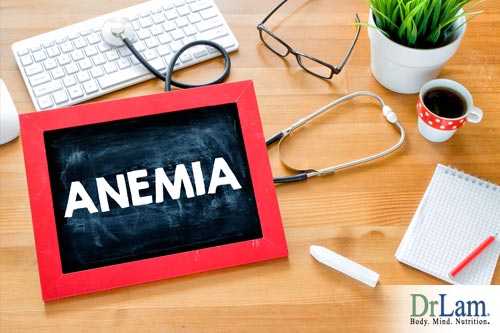
 When the heart is beating normally, you don’t usually feel it because it’s automatic. So when you experience palpitations, it can be quite distressing, especially if you don’t know what the cause might be. There are a range of heart palpitation causes, many of them fairly harmless. But still, it can be extremely frightening to find your heart pounding, skipping, or fluttering for no apparent reason. Although palpitations are more common during exercise, they can also happen at rest. If you’ve ever wanted to know about potential causes of heart palpitations and their link to Adrenal Fatigue Syndrome (AFS) and the NeuroEndoMetabolic (NEM) stress response, then here’s what you need to know.
When the heart is beating normally, you don’t usually feel it because it’s automatic. So when you experience palpitations, it can be quite distressing, especially if you don’t know what the cause might be. There are a range of heart palpitation causes, many of them fairly harmless. But still, it can be extremely frightening to find your heart pounding, skipping, or fluttering for no apparent reason. Although palpitations are more common during exercise, they can also happen at rest. If you’ve ever wanted to know about potential causes of heart palpitations and their link to Adrenal Fatigue Syndrome (AFS) and the NeuroEndoMetabolic (NEM) stress response, then here’s what you need to know.
Heart palpitations can occur once in a while or regularly. Some people even experience heart palpitations all day. They may vary in strength too. Some people have mild flutters and others have them so strong that they feel like a heart attack. The sensation can be different from person to person too. Some people experience a pounding heart rate, others feel as if their heart is flipping, fluttering, skipping a beat. Sometimes they can be a pounding in the chest or neck and other times they may just manifest as a general feeling of unease.
This variability shows just how worrying this symptom can be. Fortunately, most palpitations are caused by a harmless, momentary interruption in the heart’s rhythm. But others can be a signal for more serious problems in the heart or elsewhere.
Stress – physical, mental and emotional – is common and the human body is equipped to handle it. The main system involved in handling stress in the body is the neuroendocrine system, specifically the hypothalamic-pituitary-adrenal (HPA) hormonal axis.
The adrenal glands secrete the most important anti-stress hormone: cortisol. Cortisol helps regulate blood sugar levels, blood pressure and metabolism, and helps reduce inflammation.
But with chronic stress, the adrenal glands become dysregulated and their output of cortisol is compromised. In the first stages of AFS, cortisol output is increased, and then in later stages, it is not sufficient. The body is then unable to handle stress.
When stress is severe or prolonged enough it will affect systems that are part of the overall NeuroEndoMetabolic (NEM) stress response. This is the body’s global reaction to stress, so to speak. The circuits involved in it are the hormonal, metabolic, neuro-affective, cardionomic, inflammatory and detoxification circuits.
When you’re under stress, the cardionomic response increases the heart’s functioning and gets more blood flowing to the lungs and blood vessels. Disruptions in the cardionomic stress response can bring on imbalances in blood pressure, heart palpitations, cardiac arrhythmia, dizziness and shortness of breath. This is one of the more common heart palpitations causes.
If you’re looking at causes for heart palpitations then you’ll find a huge range. Palpitations can be linked with certain emotions or events such as standing up or falling asleep. Some of the most common heart palpitation causes are:
One of the most common heart palpitations causes is exercise. An increased heart rate is the desired outcome of fitness routines as it helps keep the heart fit, burns more calories, improves stamina and recovery times, lowers cholesterol and strengthens the immune system.
However, excessively vigorous exercise can also adversely affect health. With a balanced approach to exercise, the resting heart rate stays low. With excessive exercise, the resting heart rate can get extremely high. As a result, cortisol levels increase to deal with the stress being put on the body and mind, which taxes the adrenal gland and may bring on or exacerbate AFS.
30 minutes a day of moderate intensity is enough for most people to stay healthy and fit. It’s also important to ensure that your exercise routine is also suitable for your current health condition. For example, if you suffer from AFS, it is advisable to follow a specific type of exercise recommended by your doctor. Designing your own plan may cause recovery failure and relapses or bring on troubling AFS symptoms
Sudden and strong emotions can elicit a “fight or flight” reaction in the body along with a flood of adrenaline and norepinephrine that raises the heart rate and causes heart palpitations. Strong fear and panic attacks can also make your heart pound.
Chronic mental-emotional stress and anxiety can be the root causes of adrenal fatigue. It is therefore important to reduce stress for AFS recovery, reduction of palpitations and overall health.
 So, remove the cause of stress in your life if possible, and learn better ways to manage stress when it’s unavoidable. Breathing exercises, meditation, yoga and therapy are just a few ways that can help you deal with the stress in your life.
So, remove the cause of stress in your life if possible, and learn better ways to manage stress when it’s unavoidable. Breathing exercises, meditation, yoga and therapy are just a few ways that can help you deal with the stress in your life.
Although there are conflicting studies, caffeine is generally thought to be one of the most common heart palpitations causes. For those sensitive to caffeine, even one cup of coffee can trigger heart palpitations. If you aren’t sensitive, then it may be the amount that’s the problem.
Caffeine stimulates the central nervous system. Nerve impulses can then cause the heart to beat faster or harder.
When you’re tired, caffeine can help prop you up. However, this is a temporary effect that will cause a crash in your energy levels soon after. THis means that it may be the cause of your fatigue if you’re using it to boost your energy levels. Caffeine overuse can also push the body into adrenal fatigue and cause crashes.
It is therefore advised that you not depend on caffeine for your energy. If you’re tired, it is best to rest, eat well and exercise moderately. That way your energy levels come from a place of health.
If you are already dependent on caffeine – while also suffering from adrenal fatigue – don’t stop caffeine abruptly. Begin to heal the adrenals first, and then slowly reduce caffeine intake.
Palpitations that come from caffeine will naturally subside with lower consumption.
Alcohol, nicotine and drugs such as cocaine and amphetamines can also cause heart palpitations. A study by the American College of Cardiology Foundation shows a link between even moderate alcohol consumption and atrial fibrillation.
Some types of medications also can cause heart palpitations. These include cold and cough medicines that contain stimulants, as well as medications for asthma, heart disease, hypertension and thyroid conditions. Diet pills and some types of antibiotics can also be at the root of heart palpitations causes.
With AFS, most stimulants can aggravate symptoms and delay recovery. It is therefore suggested that you consult a medical professional trained in AFS to help you reduce the use of stimulants of all kinds, including those in medications. This should be approached in a way that does not cause sudden crashes or aggravations to your already sensitive body.
Sometimes, eating high-carb, high-sugar, or high-fat meals can bring on heart palpitations as a secondary reaction to the heartburn they may cause. Also, eating foods that you are allergic or sensitive to can do the same.
Many people with AFS will also have food sensitivities and allergies, so it is advised to get nutritional coaching to eliminate these stressors without compromising energy and health. A food diary might be useful to pinpoint which foods are causing such reactions.
Certain foods rich in the following ingredients can also cause palpitations:
 Potassium deficiency brought on by a poor diet another potential cause of heart palpitations, especially if you are also dehydrated. But be careful with potassium intake if you have AFS as it can bring on an imbalance in your sodium-potassium levels, aggravating your condition further.
Potassium deficiency brought on by a poor diet another potential cause of heart palpitations, especially if you are also dehydrated. But be careful with potassium intake if you have AFS as it can bring on an imbalance in your sodium-potassium levels, aggravating your condition further.
The peripheral nervous system is divided into two parts: the somatic nervous system and the autonomic nervous system (ANS). The ANS is divided into five subsystems, among which are the parasympathetic nervous system (PNS), the sympathetic nervous system (SNS), and the adrenomedullary hormonal system (AHS).
The SNS is the system that regulates blood pressure, force of the heartbeat and the heart rate and the AHS is what is responsible for the “fight or flight” response. The combination of the SNS and the AHS make up the sympathoadrenal system (SAS).
With advancing adrenal fatigue, cortisol output is reduced and the body’s ability to handle stress is weakened. Over time, the body interprets this as a survival threat, which in turn causes the SAS to become overworked.
Overstimulation of the SAS creates symptoms known as the reactive sympathoadrenal response (RSR) – releasing excessive adrenaline and norepinephrine throughout the body, causing a fast resting heart rate, heart palpitations, strong heart beat, anxiety and panic attacks, irritable bowel issues, feeling “wired and tired”, postural tachycardia syndrome (POTS), hypoglycemia, temperature intolerance and other symptoms.
These reactions prevent the body from resting and repairing between stressors. This is a problem because this is essential for AFS recovery. When the metabolic and hormonal functions are ‘on’ constantly, it gives rise to ongoing adrenaline rushes throughout the day. This can result in palpitations and cause your heart to pound even at rest.
This situation can become so dire that patients pay frequent visits to the emergency room. Often, they don’t have any identifiable symptoms and are sent back home. Tests come back normal for cardiac function and no answers can be found for the heart palpitations or other symptoms. Unfortunately, this does eventually result, if not properly addressed, in damage to the heart.
It is important to note that there are conditions that can cause heart palpitations that are unrelated to AFS including:
Certain types of heart conditions lead to heart palpitations, causes such as:
If you have not been previously diagnosed with these heart palpitations causes, yet have heart palpitations that are accompanied by dizziness, chest pain or fainting, it is imperative that you are examined by your doctor as soon as possible. Certain heart conditions that are associated with palpitations include heart attack, congestive heart failure and coronary heart disease as well as heart muscle or valve issues.
 Menstruation, pregnancy and menopause can cause heart palpitations. The changes in hormone levels during such times can affect your heart rate. Hot flashes can also cause palpitations that go away once the hot flash is over. Heart palpitations during pregnancy can also be indicative of anemia.
Menstruation, pregnancy and menopause can cause heart palpitations. The changes in hormone levels during such times can affect your heart rate. Hot flashes can also cause palpitations that go away once the hot flash is over. Heart palpitations during pregnancy can also be indicative of anemia.
Other conditions can be heart palpitations causes, such as:
Addressing these issues will reduce or get rid of the palpitations causes.
Heart palpitations can be frightening, even if you know that they’re usually harmless. You should never take chances with your heart. Instead, you need to look at the common palpitations causes and work out what might be causing your symptoms. Here's how to do that:
If you’re experiencing heart palpitations after stressful situations then contact our team on +1 (626) 571-1234 or click here to talk to one of our doctors about adrenal fatigue.
